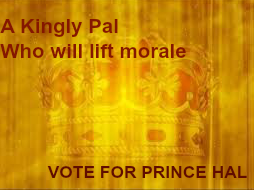
With rehearsals underway for The Tempest, our marketing director sat down with each of our cast members and asked them to share a little about themselves, their history, and what they love about performing Shakespeare. We are thrilled to bring their stories to you.
Our next interview is with Will Sarratt, returning to Smith Street Stage in the role of Trinculo.
How did you get into theatre, and acting in particular?
When I was a kid, there were summer camps that I would go to, to keep me occupied while my parents were working. I wasn’t very good at basketball or soccer, and I really dug theatre. I feel like that’s the earliest exposure to being an actor I had and it was always the thing that I enjoyed the most. My parents were great about taking me to shows all the time when I was a kid and to movies and things. And then I made a decision at a certain point, like, oh, this could be a thing that I do as a career.
You’ve done a lot of contemporary theatre. Why the shift over to Shakespeare?
I’ve always loved doing Shakespeare, and Shakespeare was such a big part of what I did in college. Being at Stella Adler, there’s such a heavy emphasis on classical training and classical work. It’s something that I always loved doing. And in high school as well, I had good exposure, but somewhere along the line after graduating I fell into a lot of new play development and a lot of contemporary work. So I feel like it was just strange fortune to fall in with a lot of younger playwrights and a lot of new plays. Which I love, and I love being a part of new work with people who have such interesting voices, but it’s also such a joy to take a break from that every now and then and do something that is one of the greatest plays of all time. So I always want Shakespeare and classical work to be in my life, because there’s endless work to do with it. You get involved in a production of Shakespeare, and the fun you get to have is just endless.
This is your second show with Smith Street Stage, right?
Well, it depends on what we count. I was an assistant with Smith Street Stage two years ago for Much Ado About Nothing, and played a small role in that, as part of the night’s watch guard. And then I was a part of their staged reading as part of the benefit in December for King Phycus.
So how do you feel coming back to the troupe as a fully-fledged actor
It’s great! It’s a group of people that I’ve known now for many years. Jonathan [Hopkins, Executive Director] was a teacher of mine at Stella Adler. He taught me during my junior year, and was somebody that I loved working with on that level. And it is so exciting and humbling, and I’m honored to be asked to be part of the cast in a big way like this, to be a real part of the show.
You’re playing the role of Trinculo in this production. How are you approaching the character? What are you doing to prepare for the role?
One of the best things so far is combing through the play with Jonathan Hopkins, moment by moment, and talking through, what is this character’s arc, what is this character’s journey, because all of the storylines in the play are so separate. My storyline with Stephano and Caliban, we don’t see anybody else in the play until the last scene. So for me, it’s about finding who he is, what his journey is, and what that means to me. I see so many relatable things in Trinculo. I see him wanting to be liked. I see him in over his head. I see him trying to get approval and be funny, be clever, be all of these things in the eyes of somebody else, all as part of this stupid, drunken adventure that he’s on. For me, it really is just tracking how he fits into this world, how he fits into this play, and what that means for me.
Smith Street Stage does a lot of non-traditional casting. What non-traditional role, Shakespearean or otherwise, would you like to play?
I’m 5’9” and 120 pounds soaking wet, but I’d love to be a Stanley Kowalski in Streetcar Named Desire kind of character. Or anyone in Streetcar, I mean, playing Blanche in a gender-swapped production would be a ton of fun.
Are there any actors, directors, or other artists who have been a particular influence on you or whose work you admire?
I had a Shakespeare director I worked with three times at Stella Adler named Angela Viteale. She’s a really great director who taught me to listen to the text and dive through it and see what is there given to me, as opposed to trying to pull choices out of the air. To listen to the language, listen to what’s there, and just trust that. As for what I’ve seen out in the world, especially with Shakespeare: Mark Rylance, who I got to see play Olivia in Twelfth Night and Richard in Richard III. It was one of the most amazing double-headers I’ve ever seen. And the simplicity and the ease, that it doesn’t have to be something performative, necessarily, it doesn’t have to be thrown out there if you are just there and in it and present, and say what you mean and mean what you say. That can be funny, it can be heartbreaking, it can be sweet. That was the only production of Twelfth Night I’ve seen that I thought was legitimately funny in such a human way.










